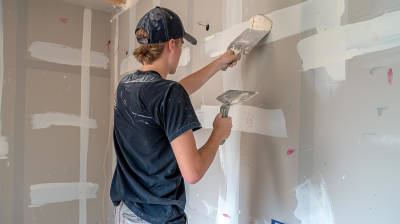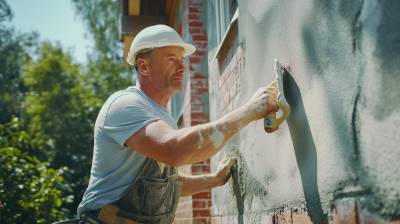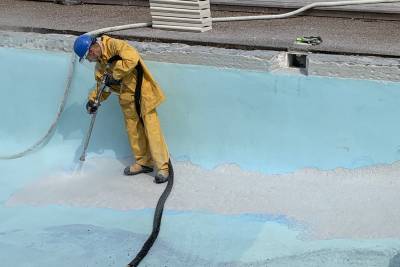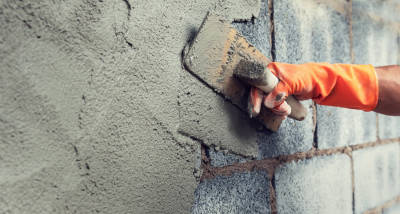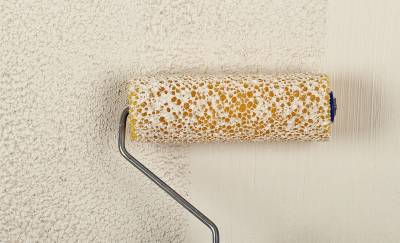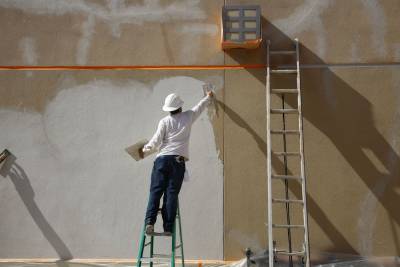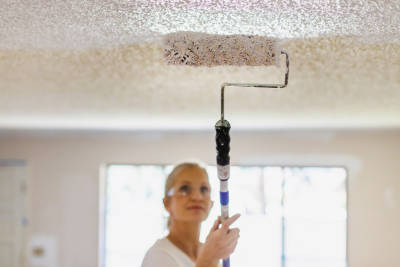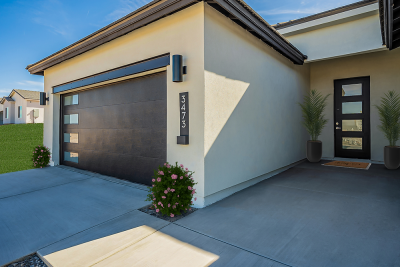The prospect of replastering a pool can be daunting for many pool owners, primarily due to the potential expense. Nonetheless, it's crucial to unpack the variables that contribute to the overall cost, which involves everything from materials to the intricacies of labor. This in-depth article covers everything you need to know about the cost to replaster a pool.
The Necessity of Replastering a Pool
Like all structures, a pool requires maintenance to sustain its performance and aesthetic appeal. Over time, factors such as weather fluctuations, pool chemicals, and wear-and-tear can contribute to plaster deterioration. This is where replastering comes into play, as a strategic investment that preserves the pool's quality, providing an inviting and secure swimming environment.
The Average Cost to Replaster a Pool
Typically, the cost of replastering a pool is heavily influenced by the size of the pool and the type of plaster used. As a result, swimming pool owners can expect to pay anywhere between $3,500 and $7,000 for the entire process. Smaller pools are obviously on the lower end of this scale, but these prices are by no means static—it's always crucial to undertake comprehensive research relevant to your unique requirements and locality.
The Influence of Pool Size and Depth
The size and depth of your swimming pool are essential variables when considering the cost to replaster. Simply put, the bigger the pool, the higher the replastering cost. If your pool is irregularly shaped or has multiple depths, this can further increase the pricing due to the additional labor and materials required.
Impact of Plaster Types
There are several different types of plaster you can choose from when replastering a pool, each with its corresponding cost implications:
- White plaster: White plaster is the cheapest option, typically costing around $4 per square foot. Though economical, it's also the least durable plaster type, lasting anywhere from 5-15 years depending on maintenance.
- Quartz plaster: This is a mid-range option that combines durability with aesthetics, generally priced around $5 per square foot. With proper care, quartz plaster can last up to 20 years.
- Pebble or aggregate plaster: This is the highest-end choice, with costs ranging from $5 to $10 per square foot. It offers superior durability and a range of texture and color options to enhance pool aesthetics. With meticulous pool maintenance, pebble or aggregate plaster can last 25 years or more.
Labor Costs Involved
The cost of labor is another significant factor in the overall replastering cost. It is worth noting that this process is a labor-intensive task that requires a well-trained and experienced team. Labor costs can range from $2,000 to $5,000, comprising a substantial chunk of the overall expenditure.
Additional Costs to Consider
Besides plaster and labor costs, numerous additional factors can contribute to the final bill. For instance:
- Water replacement: After replastering, your pool will need to be filled with fresh water, which can add to your water bill.
- Chemicals: You'll also need to re-balance your pool's chemistry, which involves adding appropriate chemicals.
- Pool accessories: Depending on the state of your pool, you might need to replace accessories like drains and lights.
Cost-Saving Tips for Pool Replastering
While replastering a pool can be expensive, there are strategies to help manage the costs:
- Accurate estimates: Shop around, gather multiple quotes, and compare services from different professionals before making a decision.
- Off-peak service: Booking your replastering job during slower seasons (like fall or winter) can potentially reduce costs.
- Maintenance: Proper pool maintenance can prolong the life of your plaster, reducing the need for frequent replastering.
In conclusion, while the costs associated with replastering a pool can be significant, they represent a long-term investment in the life, aesthetics, and usability of your swimming pool.
FAQs About the Cost to Replaster a Pool
What are the general costs associated with replastering a pool?
The general cost to replaster a pool is determined by the size of the pool and the kind of plastering material chosen. On average, this could range from $2,500 for smaller pools using basic materials to around $10,000 for larger pools that use high-end finishes.
Does the cost to replaster a pool differ depending on the type of plaster used?
Yes, the type of plaster can significantly influence the cost to replaster a pool. Standard white plaster is the least expensive, while premium materials like quartz and pebble finishes could add additional expenses."
Are there any hidden costs involved in replastering a pool?
There can be additional costs associated with replastering a pool that are not always obvious. These could include pool water replacement, new pool fittings or even resurfacing or retile costs if needed.
Does the shape or size of the pool affect the cost to replaster?
Absolutely. The larger and more complex the shape of your pool, the more it will cost to replaster. This is due to the increased amount of material required as well as the extra labor involved in replastering complex shapes.
How often do I need to replaster, and will this affect cost over time?
The need to replaster is typically dictated by the condition of your pool. If well cared for, a plastered pool can last 10-15 years before needing to be replastered. Regular upkeep might incur minor costs, but will likely save you a larger replastering cost in the long run.
Does the cost of pool replaster also include refilling the pool with water?
Mostly, the quote given to you by the pool contractor will not include the cost of refilling the pool. This expense is usually borne by the homeowner. However, it's always worth asking your contractor or company to be certain.
How does weather affect the cost to replaster a pool?
Weather can have a significant impact on the cost to replaster a pool. Cold and wet weather could delay the project, which can, in turn, increase the labour cost. Therefore, it's recommended to replaster your pool during favorable weather conditions.
Will the cost to replaster a pool be less if I choose a local contractor?
Choosing a local contractor could potentially reduce the cost to replaster a pool as you may save on transportation expenses and the contractor might already have a rapport with local suppliers to obtain materials at a lower cost.
How does the depth of the pool factor into the cost to replaster?
The depth of the pool will affect the cost to replaster. If the pool depth varies a lot, meaning that it has both very shallow and very deep ends, the replastering process may be more complex thereby potentially raising the cost.
Pros and Cons of the Cost to Replaster a Pool
Pros to Replastering a Pool
Enhanced Aesthetics
The cost of re-plastering a pool represents an investment in your outdoor living space's beauty. Key benefits include:
- The pool surface looks clean, shiny, and alluring again. It gives as new feel to your pool area. This aesthetic improvement can also increase the overall value if you ever decide to sell your home.
- Pool plaster helps accentuate the pool's design by enhancing color and texture contrasts.
Increased Lifespan
Investing in pool re-plastering can significantly extend the pool's lifespan:
- Replastering the pool surface helps prevent the formation of leaks, cracks, and other structural issues, thereby prolonging the pool's lifetime.
- It ensures the integrity of the pool, protecting the investment made when the pool was initially installed.
Improved Pool Health
Replastering the pool doesn't only make the pool look good, it also contributes to the health of the pool:
- This process helps prevent algae growth, a common issue in pools with dated or degraded plaster.
- Maintained plaster helps keep your pool cleaner and safer for swimming, as there won't be any rough surfaces that could potentially cut or scrape.
Cons of Replastering a Pool
High Initial Costs
While there are many benefits of replastering a pool, it is necessary to consider the high initial cost:
- Depending on the pool's size and the plaster type, you need to prepare for a considerable expense. High-quality plastering usually comes at a higher price.
- This process might need professional hands, which adds to the overall cost of replastering.
Temporary Inconvenience
A potential downside of replastering your pool is the temporary unavailability of the pool:
- While your pool gets a new look, it won't be usable. The duration of the process depends on various factors, but it usually takes a couple of weeks.
- Your backyard might also become a construction zone during this period, which can cause some mess and noise.
Summary
After considering all factors involved, the cost to replaster a pool can be a significant investment. However, considering the benefits, it's clear that it's a vital part of maintaining your pool. Regular replastering not only keeps the pool looking good, but also enhances its durability and longevity. The price may vary depending on the size of your pool and the complexity of the work, but it's a necessary cost if you want to continue enjoying your pool.
The cost to replaster pool surfaces can feel daunting initially, but the payoff is more than worth the price. Replastering helps prevent costly water loss and can significantly increase the life expectancy of your pool. Taking the time to understand all the costs involved will allow you to budget effectively and ensure your pool remains a refreshing haven for many more summers to come.
Investing in the cost to replaster a pool is a strategic move. Pool owners who take the time to address maintenance needs now can avoid higher costs down the line from larger repairs or even replacement. Sure, replastering is an expense, but it's one that pays off in the long run. By making this commitment to your pool's upkeep, you're sure to enjoy countless hours of fun in the sun in return.
About Atlas Stucco
Welcome to Atlas Stucco, a beloved fixture in Sacramento, CA! We've been perfecting our craft for years, applying our expert touch to residential and commercial properties alike. Our experienced team prides itself on top-notch workmanship, showcasing the versatility, durability, and downright beauty of stucco. We're committed not just to enhancing the aesthetics of your spaces, but also to adding value and longevity. Don’t worry, our team is much more than just stucco specialists. Customer service is at the core of everything we do. So, for all things stucco in Sacramento, look no further than Atlas Stucco.
Tags: swimming pool, pool maintenance, pool renovation,








